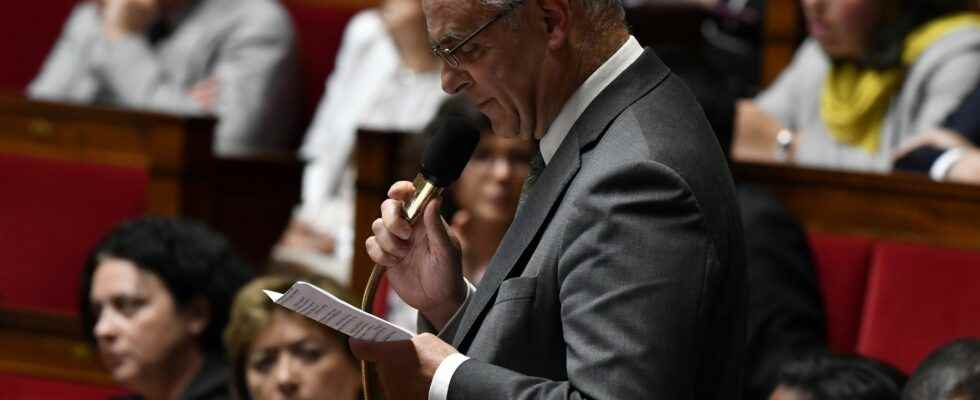“Macron promises a budget of 413 billion for armaments and the army. But he does not know how to finance pensions or health?” Thus tweeted Fabien Roussel, the boss of the Communist Party, on January 21. In the processions of demonstrators against the pension reform, the increase in military credits (over six years) regularly arouses indignation. A misunderstanding that stems from the lack of national debate on our defense policy, according to former MP François Cornut-Gentille (Les Républicains).
Rapporteur of the defense budget to the National Assembly for fifteen years, this elected representative from Saint-Dizier, in Haute-Marne, salutes the quality of our armies, which “gives our country an audience far greater than its economic and demographic weight “, he says. But he is worried. The figures revealed by Emmanuel Macron evade in his eyes a more global questioning of our strategic priorities, which require significant investments. It remains to defend this idea, which is sometimes not very tangible for the general public.
L’Express: In times of inflation and public service crisis, how can you justify committing 413 billion euros to the army rather than to health, national education or justice?
Francois Cornut-Gentille: We can only justify such a commitment if the leaders explain to the French the threats hanging over us. War can come sooner or later, especially if you’ve let people think you’re not preparing for it. If Russia dared to attack Ukraine, it was because Putin thought we were weak. Of course, thanks to nuclear deterrence, we can think that we will not be attacked on our territory. But it would be a big mistake to think that, since we have deterrence, we don’t need to prepare for other threats. Being a military power, being able to project ourselves, to surprise, is a matter of sovereignty, it is what allows us to intervene if necessary to avoid having waves of immigration in our country, it is which allows us to have the ambition that Europe is something other than German or American.
The French cite as subjects of concern inflationhealth or pensions, rarely defense.
If we think that defense issues are an elegant subject for think tanks, that it is not vital and urgent, then, yes, it is better to increase the justice budget. But it will have consequences. If we think that our place in the world is at stake, we have to explain it to the French, take the time to debate. It seems to me that we have everything to gain by challenging public opinion on the subject, by explaining the state of the threats, the interest of building a European defence. On these subjects, we have remained too long among experts, we must now get out of this bubble.
What then should be the priorities of French defence?
All major conflicts are a mixture of hypertechnicity and mass. We master hypertechnicity, but we have a mass problem. This is the “sampling” side of our army. In this respect, the Army considers itself sacrificed. Tomorrow, we will also have to be able to send 10,000 men somewhere very quickly, the equivalent of Operation Serval in Mali in January 2013. Are we still capable of that? I do not know. We also need a real strategy for the Indo-Pacific. We value our status as a global maritime power; okay, but then we will have to be able to defend our positions all over the world, to be more present, if we want to be credible.
Does the budget outlined by Emmanuel Macron for the next military programming law seem up to these challenges?
We must welcome the increase in the budget since 2017. But it is only a catch-up, we must do more. Emmanuel Macron has taken up the idea of France as a power of balance, independent of the greatest powers, capable of speaking in its own name. Alright. To develop this position, you must above all show that you are a power. If the idea of balancing power is just a dressing up of our helplessness, it won’t work. We will pass for not credible lesson givers. We are aiming for a military budget of 68 billion euros per year by 2030, it seems huge, but at the same time Germany and the United Kingdom are aiming for at least 100 billion each. We can do better with less money because we have know-how, but only to a certain extent. The ideal would be to be able to rise to 80 billion euros per year.
